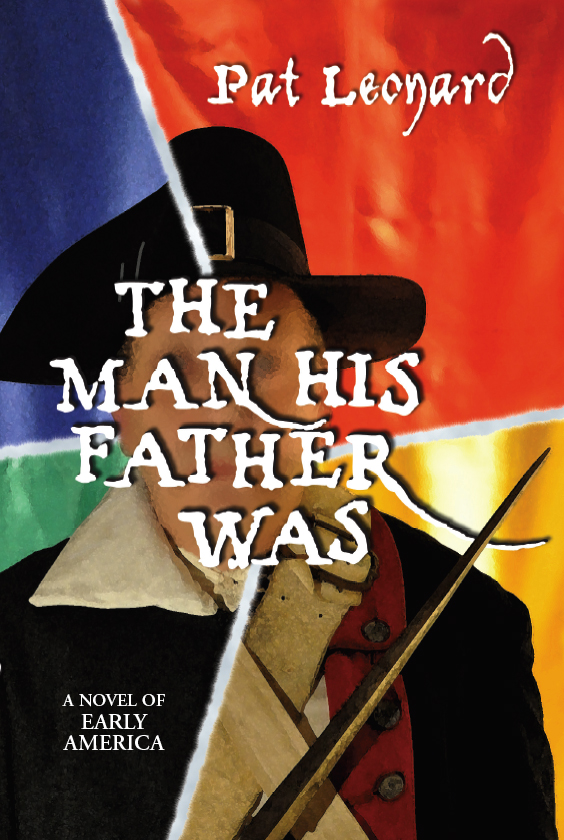THE MAN HIS FATHER WAS focuses on three generations: Samuel is the subject of the first part of the book; Samuel’s son James is the protagonist in the second segment; and James’ son is “Infant John.” In Samuel’s portion, we see the family, who are not Puritans, embroiled in a disturbing pattern of pressure and persecution by the Puritans, who fled the Old World in search of tolerance for themselves but are not prepared to offer it to others. Though often the target of Puritan spite, Samuel and his family triumph in the end. James, known as Jemmy, is not Samuel’s smartest or most ambitious son, but he is level-headed, humble, and generous. His boy John survives the “pox” with the help of new medical techniques, finds himself caught up in the Revolutionary War, and towards the end of his life, struggles with the affliction known today as Post Traumatic Stress Disorder. There is a brief epilogue that takes the lineage up to the Civil War era.
Though we can’t know precisely how our ancestors thought and spoke, Leonard has obviously done research to construct this bold presentation of the lives of ordinary settlers in a credible manner. He strives to keep dialog as close as possible to the parlance of the day, while quoting from written records (such as early newspapers) to remind us of the flavor of the literary language in 1700 and 1800. He deftly intermeshes the imagined lives of his forebears with those of real historical figures like Benjamin Franklin and Aaron Burr. Composed as fictional journal entries, the book depicts Leonard’s forebears as introspective and open-minded, Samuel having the proclivity and sensitivity to speak Native American languages, for example, and Jemmy’s wife expressing her distaste for the increasingly prevalent practice of slavery. His characters decry the inhumane punishments meted by Puritans, and express shock at the wholesale slaughter of innocent Native American peoples. His family saga underscores both the isolation of women at home with many children to care for, and the dangers that beset men traversing lands that were once trackless wilderness.
THE MAN HIS FATHER WAS is engaging fiction with realistic touches, looking at family life and societal changes in New England from the days of earliest Puritan settlement to the winning of American independence.
-IndieReader.

